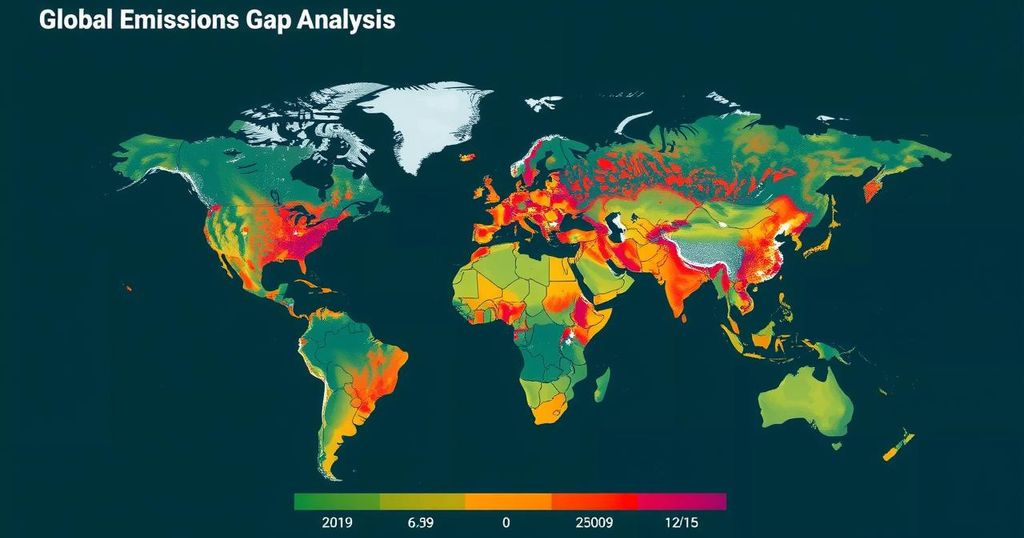The UN Environment Programme (UNEP) report stipulates that nations must reduce greenhouse gas emissions by 42% by 2030 and 57% by 2035 in their upcoming climate pledges to avoid exceeding the 1.5°C limit of the Paris Agreement. Failure to raise ambitions could result in global warming reaching 2.6°C to 3.1°C. Significant investments and immediate action are essential to bridge the emissions gap and achieve climate targets.
A newly released report from the UN Environment Programme (UNEP) emphasizes the urgent need for nations to significantly reduce greenhouse gas emissions in order to maintain the global temperature limit of 1.5°C established by the Paris Agreement. The report outlines that countries need to pledge to cut emissions by at least 42% by 2030 and 57% by 2035 in their upcoming Nationally Determined Contributions (NDCs) to avert catastrophic climate consequences. Submissions of updated NDCs are expected early next year ahead of the COP30 climate talks in Brazil. Without heightened ambition and immediate action, the report forecasts a potential rise in global temperatures to between 2.6°C and 3.1°C by the end of the century, exposing the world to severe climate-related disasters. Despite achieving record high greenhouse gas emissions of 57.1 gigatons in 2023, the report identifies that it is still technically feasible to achieve the 1.5°C target, but it demands robust international mobilization and comprehensive government action across all sectors. Enhanced investments—estimated between $0.9 to $2.1 trillion annually through 2050—are necessary to transition towards a net-zero future. The report also underscores that G20 nations, which account for a significant majority of global emissions, must play a pivotal role in leading these initiatives for significant impact.
The urgency of the climate crisis has prompted a series of international agreements aimed at limiting global warming. The Paris Agreement of 2015 established a target to limit the increase in global heating to well below 2°C, with aspirations to limit the temperature rise to 1.5°C. However, the current trajectory of emissions indicates that immediate, ambitious action is necessary to keep these temperatures within the specified range. The UNEP’s Emissions Gap Report provides a comprehensive analysis of the gap between current emissions trajectories and the targets required to maintain climate stability, emphasizing the critical need for enhanced climate pledges by national governments in the upcoming climate negotiations.
In conclusion, the findings of the UNEP Emissions Gap Report serve as a clarion call for immediate and decisive action from the global community. Nations must commit to substantial emission cuts in their upcoming climate pledges and implement strategies to close the emissions gap. Failure to do so will jeopardize the 1.5°C climate target, leading to severe consequences for the planet and humanity. The call for enhanced international cooperation, investment, and a renewed commitment to effective climate policy is imperative as the world gears up for COP30.
Original Source: phys.org







